How do you put together the Proms?
- Published
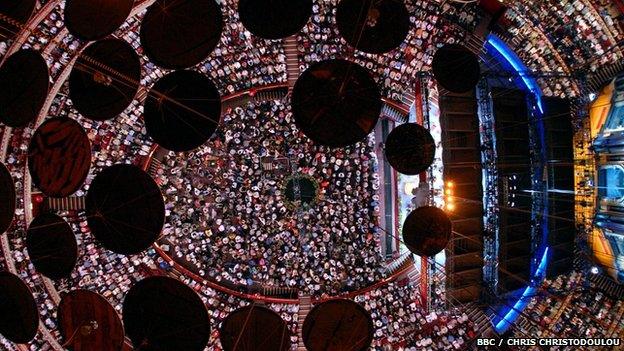
Hundreds of thousands of people will attend one of the Prom concerts
The BBC Proms is one of the UK's biggest cultural endeavours, and in 2015 it will feature more than 350 pieces of music, performed across 76 concerts, by some 200 artists and more than 70 orchestras, choirs and ensembles.
The gravitational pull of the eight-week festival draws some of classical music's brightest stars into its orbit.
Heartthrob tenor Jonas Kaufmann takes the stage along with soprano Danielle De Niese; pianist Sir Andras Schiff applies his peerless touch to Bach; while Sir John Eliot Gardiner illuminates Berlioz and Monteverdi with his period-instrument ensembles.
The line-up is so packed with top artists that name-dropping from the programme is like having jewels fall from your pocket - Barenboim, Gergiev, Alsop, Glennie, Rattle, Knussen and Benedetti.
So who are the people who put the whole thing together?
"My core team is no more than 20 people," says Proms director Edward Blakeman, who maps out the season on sheets of paper.
"We have a grid, with a box for each concert," he goes on. "I couldn't keep it all in my head."
It's not even really possible, Blakeman says, to pinpoint when the planning for a season begins. He describes it as more of an "ongoing process".
"It's like a jigsaw puzzle in which the picture gradually becomes clear. The BBC orchestras are the corners, the edge pieces - the outline of the festival programme."
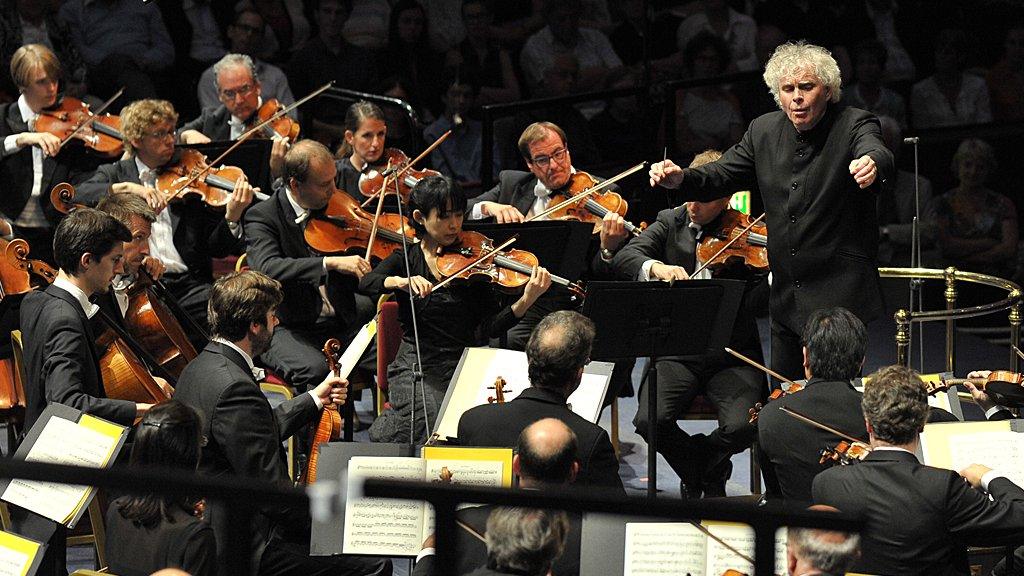
Sir Simon Rattle will conduct Elgar's Dream of Gerontius with the Vienna Philharmonic
With many international orchestras planning tours four or five years in advance, some pieces of the puzzle can fit into place very early indeed.
This year's Proms will see Norwegian pianist Leif Ove Andsnes bring to a close a four-year Beethoven piano concerto project with the Mahler Chamber Orchestra.
"They knew they would be ending their project in 2015," says Blakeman. "It became clear that they wanted to finish at the Proms with a complete cycle of the concertos.
"From there came the idea of doing a complete Prokofiev cycle, albeit in a slightly different way - we are doing them all in one night."
As it became clear that 2015 would be an important Proms for piano music, the decision was made to include some of Mozart's works as well.
"We programmed the late, great concertos for this season," says Blakeman.
But amid simultaneous discussions with so many top artists - all of them wanting to bring their own choice of repertoire - how is everybody kept happy?
"We are very lucky in that people want to come and perform at the Proms," Blakeman explains.
"So the conversations about which artists will bring what repertoire, and when, are a lot easier to negotiate."
Hotel scrum
One of those conversations has been with the Boston Symphony Orchestra, which this year plays two Proms back to back in August.
With more than 90 musicians, just getting the ensemble across the Atlantic is a "daunting and exciting" task - one that falls to the BSO's concert operations manager, Sarah Radcliffe-Marrs.
"We'll pack everything up - wardrobe cases, instruments cases, all sorts of equipment we'll need - then everyone will make their way from Boston to the UK," she says.
"The smaller instruments - violins, flutes, cellos - we bring with us. Double basses have enormous travelling cases. I'm about 5ft 8in and I think I could probably get inside one of them.
"Violinists bring one, if not two instruments with them, and several bows - one of our violinists has 10."
The instruments need careful climate control when they travel and moving everything from place to place requires careful planning. And all that before a hotel check-in for more than 130 people at once.
"We have to think about how to give the musicians access to their instruments, because they will want to practise when they arrive," says Radcliffe-Marrs.
"But we'll be in a hotel, and there is no obvious place to park an instrument truck."
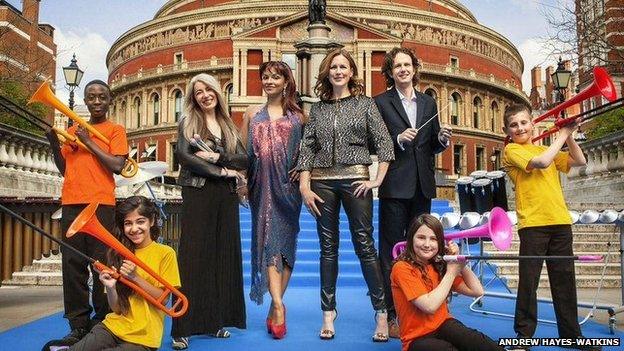
This year features concerts inspired by Ibiza, Sherlock Holmes and the Hubble telescope
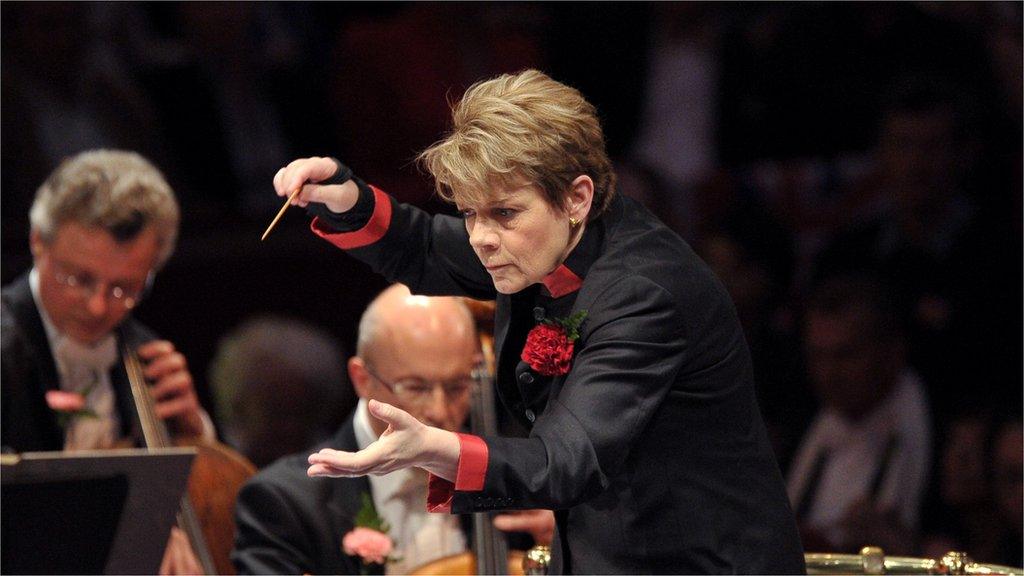
Marin Alsop, the first female conductor to helm the famous Last Night, returns again this year
The aim of this meticulous planning is to deliver the musicians and their instruments to the Royal Albert Hall in the best possible condition to perform.
As the orchestra gathers backstage, the audience will be filing into the RAH's cavernous arena, many of them choosing to buy standing tickets on the day.
As they make their way into the building they'll be met by the RAH's front of house chief, Julia Robinson.
"It's a really exciting time of year for us, we have all these thousands of people coming every single day," she says.
"We have the buzz of people queuing outside - and people full of very high expectations."
Robinson will spend the final hours before the opening night making sure her staff know how to get the audience into the building as smoothly as possible.
With 118,000 tickets sold in just 12 hours this year, there are huge numbers of people to cater for. And they all need to find their way around.
"The Royal Albert Hall is a beautiful building but it's not particularly easy to navigate," says Robinson.
She has around 55 stewards available for each concert, complemented by teams dealing with catering, box office and housekeeping, amounting to "hundreds" of staff in total around the RAH every night.
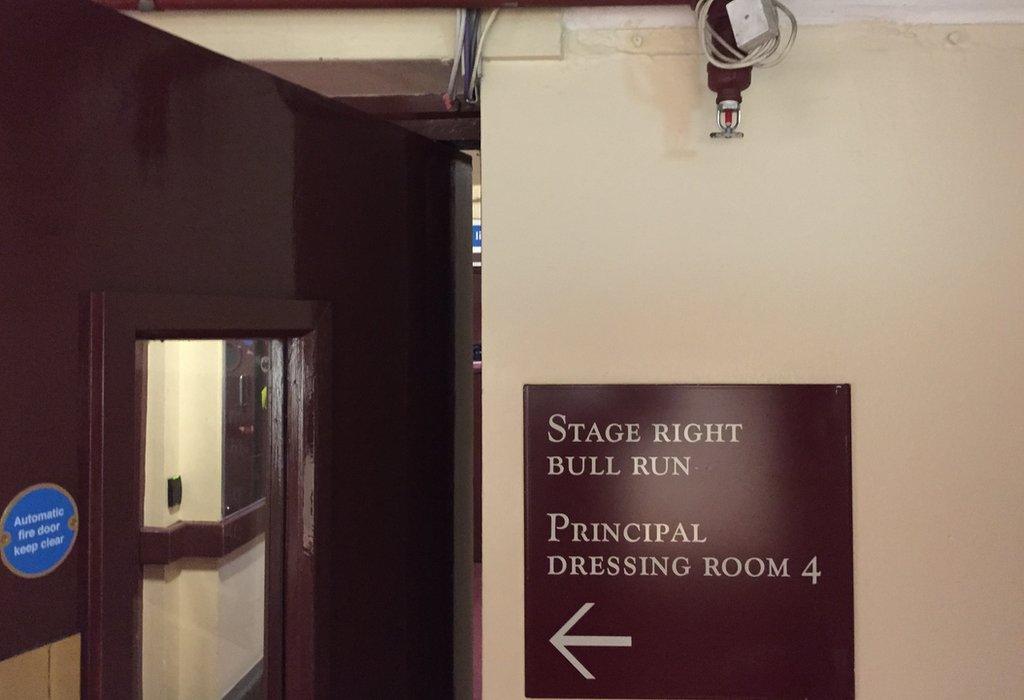
Backstage, the Royal Albert Hall is a labyrinth of circular corridors and mysterious dead ends
So as the house lights go down for the season's opening concert, and the opening bars of Nielsen's Maskarade fill the room, it will be the culmination of a process that started some five years ago.
It is a process involving hours of negotiation and planning, a logistics operation worthy of the military and a cast of support staff from broadcast engineers to bartenders - all supported financially by the BBC.
"The Proms are underwritten by the BBC to the sum of approximately £10m and we have a total income of around £5m, including ticket sales," says Blakeman.
"We would like to recover more, but that would mean raising our ticket prices."
For all the money and effort and people involved, concert programming is an art, not a science. Risky concerts will unexpectedly fill the hall, and others that look popular will struggle to sell tickets.
It's something that can still put the fear into a Proms director. So has Blakeman got it right this time?
"I hope so, ask me in eight weeks' time," he replies.
The BBC Proms runs from 17 July to 12 September 2015.
- Published7 July 2015
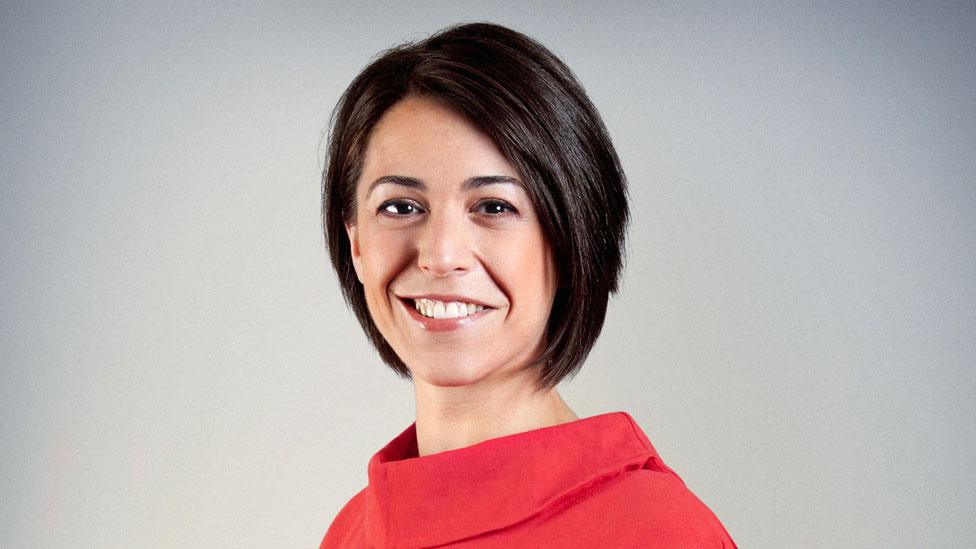
- Published17 May 2015
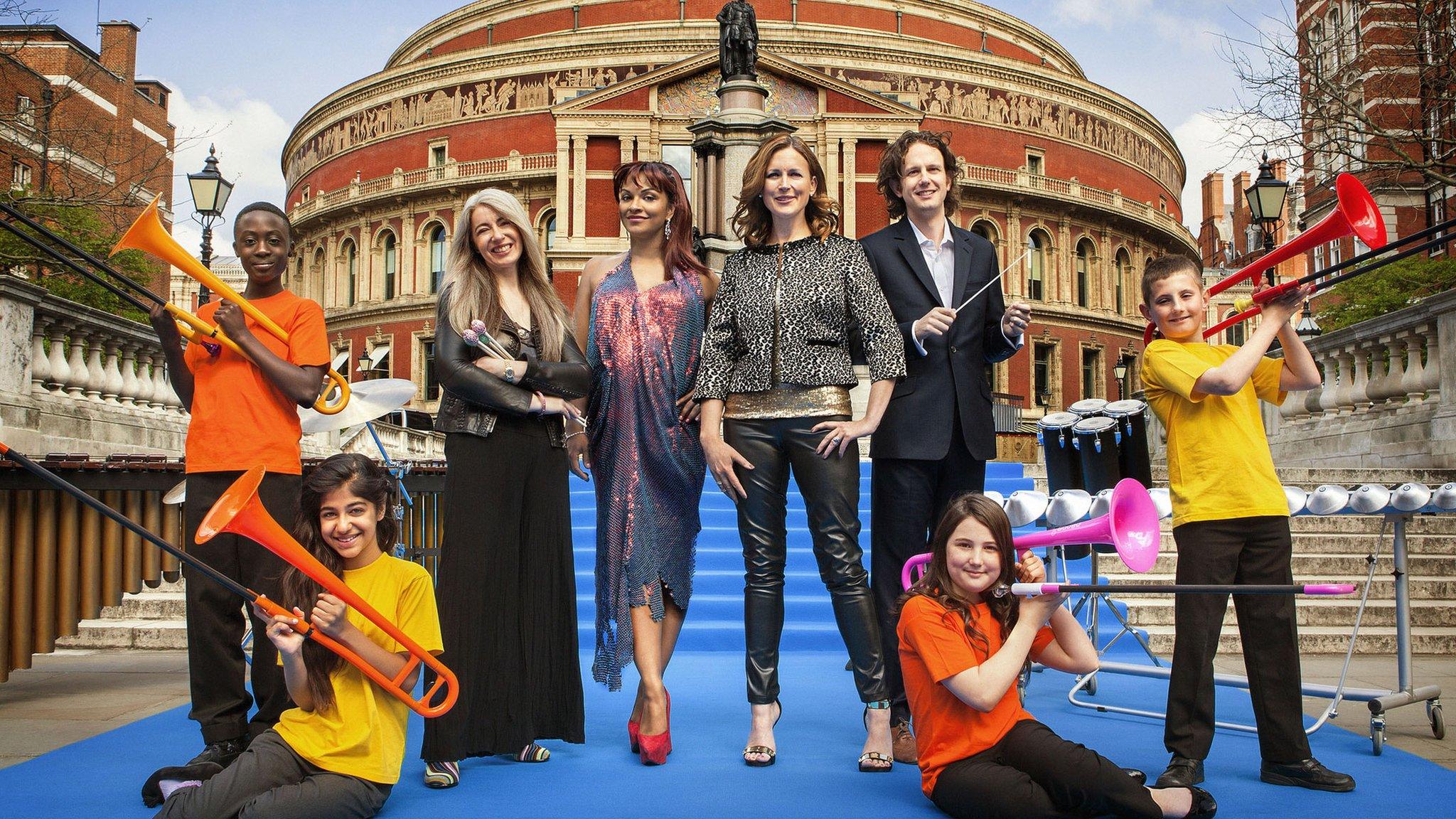
- Published23 April 2015
